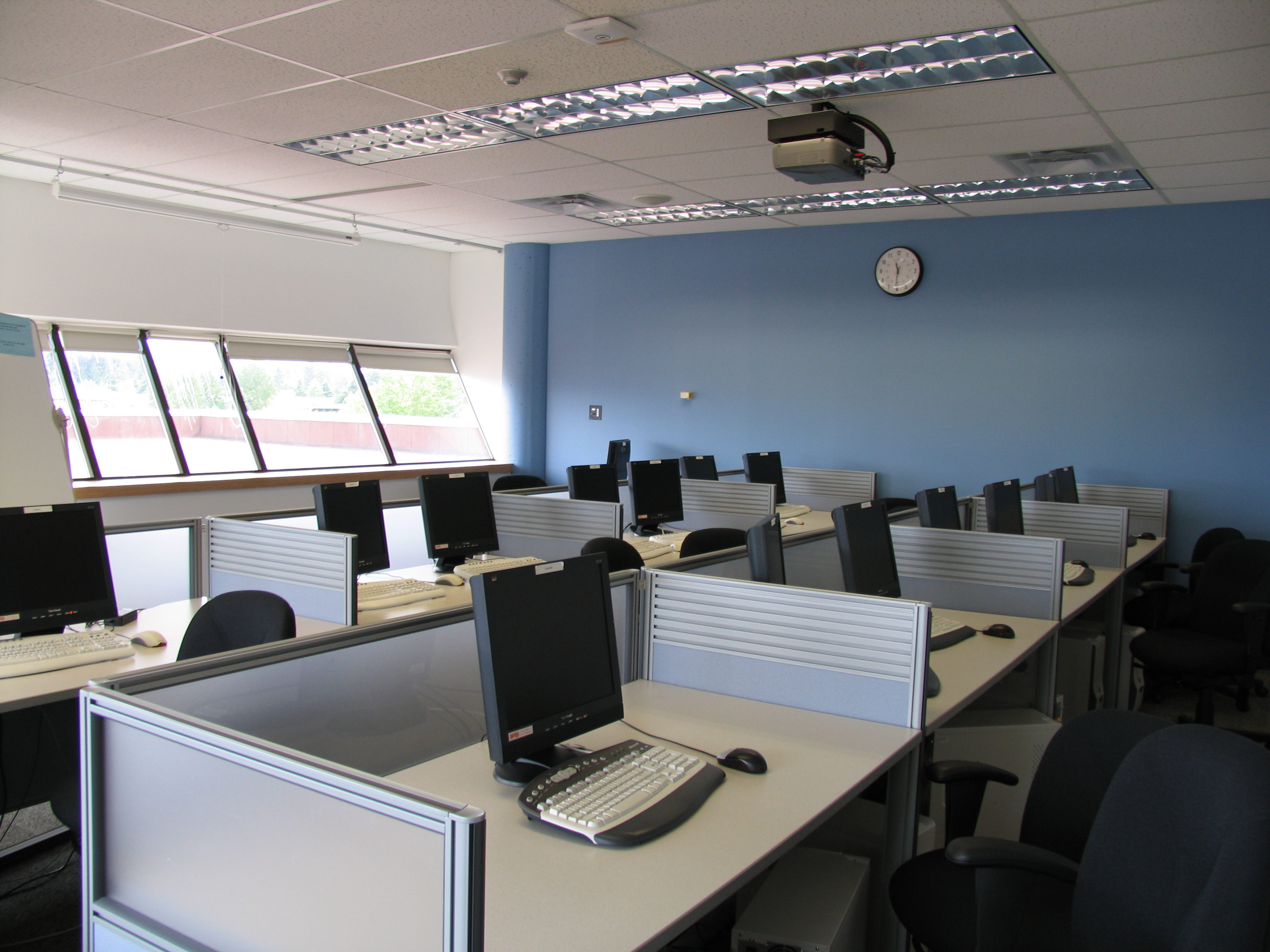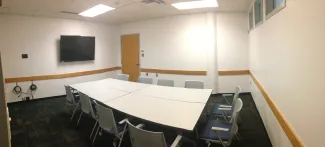FAQs Graduate
What is the graduate student process for requesting a Leave of Absence from a program?
Faculty of Graduate and Postdoctoral Studies - Leave of Absence policy
See step-by-step instructions on starting a leave of absence request.
What is the N95 Particulate Respirator Mask and where can I get one?
As a requirement for practice, each student must be fitted with an N95 respirator prior to the start of practicum, by a certified provider.
A respirator is a mask worn over one’s nose and mouth to keep airborne contaminants out of the wearer’s respiratory system and provides a safe air supply while wearing it. The N95 respirator is a specially fitted mask required for use in the care of patients with Airborne infection control precautions.
An “N-95” mask means it is Not resistant to Oil is at least 95% efficient at removing particles 0.3 micrometers in diameter from the air while being used in the course of care and with proper fit and use.
Fit testing certification for an N95 mask is to be renewed annually by an approved provider. BSN program re-certification needs to be valid until at least May the following year, so it takes students through to the end of preceptorship/graduation in May.
Students are required to carry proof of fit-testing on their person at all times during the placement experience, which includes the following information:
Student or PSI educator/Instructor name;
Post-Secondary Institution name;
Fit-test date;
Brand, model and size of respirator successfully fit-tested;
Fit-testers name.
Respirators typically utilized:
With the reintroduction of 3M 1870+ respirators across BC, Health Authorities are transitioning to utilizing the following standard models of N95 respirators (listed in order of preference):
1. 3M 1870+
2. 3M 8210
3. 3M 1860 / 3M 1860S
4. Halyard 46727 (IH, NH, VCH and VIHA only)
5. CAN99 from Vitacore
Note: Fit testing is specific to the individual and the model of respirator.
Some Suggested N95 Fit Testing Locations include:
Link2Life
2378 Alberta Street Vancouver, BC
Sign up for N95 Mask Fit Testing
EMTEC Environmental Consulting Ltd.,
#121-8680 Cambie Road, Richmond, B.C.
Sign up for N95 Mask Fit Testing
Vida First Aid
7818 6th Street, Unit 304, Burnaby, BC
Sign up for N95 Mask Fit Testing
NB: This list is not exhaustive, as new suppliers and brands may be updated from time to time.
The above companies are recommended but is not an all an exclusive list. Outside the lower mainland you may find N95 Fit testing services for health facilities in your own community. The service you need is N95 respirator fit testing services conducted in accordance with the CSA Standard CAN/CSA-Z94.4.02. The masks generally supplied in the relevant clinical placements in the BC Health Authorities include: 3M Aura 1870+ (3M 1870 to be phased out by 2016), 3M 1860, 3M 1860S, Kimberly Clark Regular, Kimberly Clark Small.
Furthermore, the National Institute for Occupational Safety and Health (NIOSH) is a US agency that approves respirators. According to WorkSafeBC, NIOSH-approved masks are also approved for use in the Canadian healthcare setting, as they meet the similar safety standards.
KN95 mask are respirator masks made according to China’s standards, and although very similar, there have been some differences in the breathability, and observed inconsistencies in the level of particulate filtration, which have been found upon testing conducted in Ottawa and the US (See quote and reference links below). So, while KN95 masks may be acceptable for average consumer use, it is not considered safe for healthcare standards where a nursing student/ healthcare provider would be working in an environment with a high risk of direct exposure to various microscopic infective particles. Furthermore,
“Health Canada indicates the N95 and KN95 standards are similar "with respect to design, filtration, performance and materials standards." However, it says that "recent testing performed by the CDC resulted in concerns with some KN95 respirators (specifically those with ear loop design) that pose a difficulty in achieving a proper fit, which is essential for use." (Source: https://healthycanadians.gc.ca/recall-alert-rappel-avis/hc-sc/2020/7306…)
With that said, at this time we must continue to adhere to the list of healthcare provider approved masks referenced above. Please also ensure that your mask fit-testing provider is utilizing masks approved for Healthcare provider use and that their testing services are conducted in accordance with the CSA Standard CAN/CSA-Z94.4.02.
Should you not have access to fit-testing providers that can meet the identified standard, you will be asked to indicate that to the BSN program at the time of certificate collection. If you do not have a valid certificate which meets the school’s requirements, when the school arranges for testing, you will be responsible for testing cost, and you will also be required to participate at the scheduled time designated by the BSN program.
Please note, it is in your best interest if you have access to appropriate vendors, to get tested before the start of the term. Alternatively, for students who were not able to get fit-testing certificates, the School of Nursing will arrange testing. There will be limited flexibility in the fit-testing sessions at UBC and students will not be able to select a time. Appointments will be scheduled in tandem with other scheduled on-site activities.
What is the process for extending my graduate program?
For instructions on how to request an extension to your program end date, please read: Request an Extension to your Program End Date
Faculty of Graduate and Postdoctoral Studies - Program Extension policy
What is the process for requesting a graduate Directed Study course?
Review the Guidelines for Independent/Directed Studies in Nursing for procedures to request a Directed Study.
What is the process for transfer credit between graduate departments at UBC?
Please review the information in this link: https://www.grad.ubc.ca/current-students/managing-your-program/transfer-credits
What student spaces do I have access to?
As a student in the School of Nursing, you have access to 3 informal student learning spaces dedicated just to you!
- Nurses’ Lounge” brought to you by the GSNA & NUS (T252) – Group study / hangout, microwaves, fridge, coffee maker, TV, computer terminals with access to printers.
- Student Computer Lab (T295) – Computer Lab access for all students, used for classes, tutorials, or individual / group student work. SPSS available on 8 workstations.

- Student Conference Room (T293A) – Silent study & student meetings. Book this space.

- All spaces are available to School of Nursing Students with key card access 24/7! You can proceed to the School of Nursing e-payment System to get your key card.
When does the application Open?
Our applications typically open in early September, and remain open until December 1st.
When will I know my graduation ceremony date and time?
The Fall schedule is available in September and the Spring schedule is available in February on the Graduation at UBC website. More personalized information will be available on the Student Service Center (SSC) nearer to the ceremony.
Where can I find a Gender-Inclusive Washroom?
There are two gender-inclusive single-stall washrooms located in the UBC Hospital-Koerner Pavillion.
- First one is located on the 3rd Floor - Occupational Science & Occupational Therapy Room# T328
- Second one is located on the main floor near the hospital reception area Room# M104.
*More locations on campus
For more information please visit the UBC Student Services website.
Where can I find breastfeeding friendly spaces?
The School of Nursing has it's own breastfeeding friendly space.
Koerner Pavillion-UBC Hospital (Private)
Rm T234-2211 Wesbrook Mall, V6T1Z3-Third floor, down the hall from the main office of the School of Nursing (view map)
Availability and Restrictions:
The room is available Monday-Friday, 8:30 a.m.-4:30 p.m.
A change table is not available at this space. It has been installed in the nearby women’s washroom.
No key is required for this room, however an occupied sign on the door indicates that it is currently in use and unavailable.